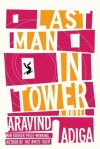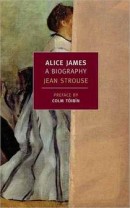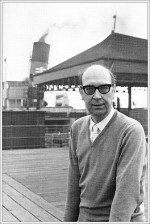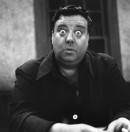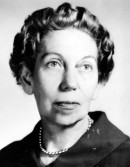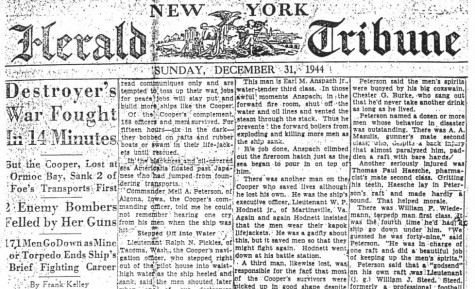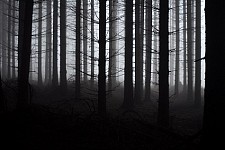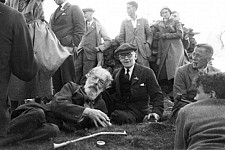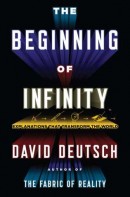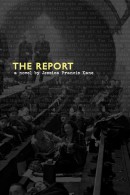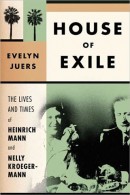
Monday, November 28th, 2011
The Second Pass is on hiatus at the moment. When and how it will return is up in the air, but I’ve started a very exciting new job as the web producer for the books section of the New York Times. So for now, all my time and books-related energy will be channeled over there. I imagine most or all of you visit the Times for books coverage, and I hope you’ll continue to check in there and see what I’ll be up to. My sincere hope is that this will be a brief hiatus, but when the site kicks back up its focus may have changed a bit. If that sounds vague, it’s because it’s still vague to me. When I know more, you’ll know more.
In the meantime, though this isn’t goodbye, I’d like to take the time to thank again all of the talented, dedicated contributors who have helped make the site a success — and the readers who have made visiting the site a habit. More soon… READ MORE >
Wednesday, November 2nd, 2011
At Kirkus, Jessa Crispin interviews Jean Strouse about her biography of Alice James — sister of William and Henry — which has been reissued by the great NYRB Classics. At one point, Crispin asks Strouse if she approached her subject with a hidden agenda, given that Alice James has been “a symbol of the lost woman of the pre-feminist age, the hysteric, the spinster, the woman oppressed by the patriarchal era.” Strouse replies:
I specifically did not want to make Alice into a symbol or symptom of female oppression, victimhood, hysteria, etc. At times, during the process of “living with” and writing about her, I grew frustrated by the radical limitations of her life — even though of course I knew all along how the story was going to turn out. I couldn’t help, in the day-to-day evolution of her story, wanting it somehow to come out better, for her to have been happier, to have found more real pleasures and satisfactions.
What kept me honest was the admonition she sent to William as she was dying: “Pray, don’t think of me as a creature who might have been something else, had neurotic science been born.”
By “neurotic” she meant the science of nervous disorders—and she was right: Freud published his Studies on Hysteria in 1895, three years after Alice died. She knew her family and posterity would want to imagine who she “might have been.” Yet her prescient plea — “don’t make excuses for me; take me for what I am” — expressed her fierce sense of integrity, her hard-won philosophical acceptance and brave acknowledgment of her failures. Who she was turned out to be much more interesting than who she might have been.
And at Dead Critics, Lisa Levy writes at length about Strouse’s book, placing it in the context of the entire James family biography-industrial complex, including Leon Edel’s five-volume life of Henry and F.O. Matthiessen’s portrait of the clan: (continues after the jump) READ MORE >
Thursday, October 13th, 2011
Philip Larkin wrote the following letter to his friend Norman Iles, who he had met when they were students together at Oxford, on Feb. 26, 1967:
Dear Norman,
Thank you for your two letters: I received them with pleasure & read them with delight, & put them neatly together on one side — answering the buggers is another matter, though. My busy lazy life seems to have no time for letter writing. I liked the first letter a lot. You seem to have got your life taped, & not red-taped either. Don’t know how you do it.
As regards the second one, & your request for help in getting published, well, nothing I can say will make any publisher accept work he doesn’t think worth it. A year or so ago a woman whose six novels I much admire had her seventh rejected by her publisher: I charged in like a mixture of Sir Bedivere & Lloyd George to try to persuade Faber’s to take the seventh — played on the old-boy network like a harp. Nothing happened. So there you are. I’d be happy to read the poems, & give what advice I can, but in the end you’ve got to please the publisher, unless you’ve got money in the firm or are screwing his wife or something. (continues after the jump) READ MORE >
Thursday, October 13th, 2011
Jonathan Franzen recently suggested that David Foster Wallace made things up in some of his most famous nonfiction pieces, including “Shipping Out,” about his time on a luxury cruise. He didn’t specify what or how much was made up. Michelle Dean covers the story here. This has led, unsurprisingly, to people expressing strong opinions about Franzen online. It has also led to (more) discussions about truth-telling in nonfiction. Wallace was interviewed by Tom Scocca for the Boston Phoenix in 1998, and last year Scocca put the full transcript of their talk up at Slate (in five parts that start here). Some of it concerns the issues that confront an obsessively imaginative fiction writer who writes nonfiction. (Wallace told Scocca at some length that he considered himself a fiction writer above all else. This is not shocking, but I’ve argued — and I’m not alone — that nonfiction was his better form.)
Since there have been approximately 5,000 debates about nonfiction in the James Frey/JT Leroy/Everyone Else Era, and since I’m unlikely to conduct an effective one all by my lonesome at the moment, I just wanted to highlight a funny excerpt from Wallace’s conversation with Scocca, this about one of the subjects in “Shipping Out”:
Q: Also when you’re writing about real events, there are other people who are at the same events. Have you heard back from the people that you’re writing about? Trudy especially comes to mind—
DFW: [Groans]
Q: —who you described as looking like—
DFW: That, that was a very bad scene, because they were really nice to me on the cruise. And actually sent me a couple cards, and were looking forward to the thing coming out. And then it came out, and, you know, I never heard from them again. I feel — I’m worried that it hurt their feelings.
The. Thing. Is. Is, you know, saying that somebody looks like Jackie Gleason in drag, it might not be very nice, but if you just, if you could have seen her, it was true. It was just absolutely true. (continues after the jump) READ MORE >
Wednesday, October 12th, 2011
The letter below was written by Stendhal to his sister Pauline on Oct. 29, 1808:
The arts promise more than they perform. This idea — or, rather, this charming sentiment — has just been given to me by a German street-organ which played, as it passed through the street next to mine, a tune of which two passages are new to me — and, what is more, are charming, in my opinion. The tears almost came into my eyes.
The first time I ever took pleasure in music was at Novara, a few days before the battle of Marengo. I went to the theatre, where they were playing Il Matrimonio Segreto. The music delighted me like an expression of love. I think no woman I have had ever gave me so sweet a moment, or at so light a price, as the moment I owe to a newly heard musical phrase. This pleasure came to me without my in any way expecting it: it filled my whole soul. I have told you of a similar sensation that I once had at Frascati when Adele leant against me while we were watching fireworks: I think this was the happiest moment of my life. The pleasure must have been truly sublime, for I still remember it although the passion that caused it is entirely extinguished.
READ MORE >
Wednesday, October 12th, 2011
This week, the blog is featuring writers’ correspondence. The letter below was written by Eudora Welty to William Maxwell and his wife Emily in May 1963. It’s featured in What There Is to Say We Have Said :
:
Dearest Emmy and Bill,
The train ride here, down the hypotenuse to Texas, is utter peace. When you leave the city goes away immediately and it’s mountains, or valleys with beautifully ploughed fields and yellow barns till dark. There was the biggest thunderstorm I ever rode a train through, you could even hear the thunder through the roof & windows, but we were all enclosed and it was quite like added scenery, the wild heavens. After you leave St. Louis, you ride another good train, following the Mississippi from 4:30 till dark, as close to the water as the train used to go along the Riviera (it may still!). There’s no very frequent sign of human habitation at all, and it’s the way the river must’ve looked in the days of the Indians, or of Audubon anyway, so you imagine. Then that night, the whole world was lit up with fireflies. The train must have been going through wild country, hardly any electric lights, all darkness, and flashing, flashing from the ground to way up in dark trees, mile after mile. Then of course woke up eventually to oil wells — but not too many, because it’s fairly green and full of trees, hilly, in East Texas. Austin is green, with huge live oaks, and oleanders, magnolias, gardenias etc. in bloom. The wildflowers along the tracks were so thick — gaillardias, cosmos, phlox, thistle, calliopsis, & of course bluebonnets. There is a wild clematis called the leather flower — dark ruby red — (continues after the jump) READ MORE >


